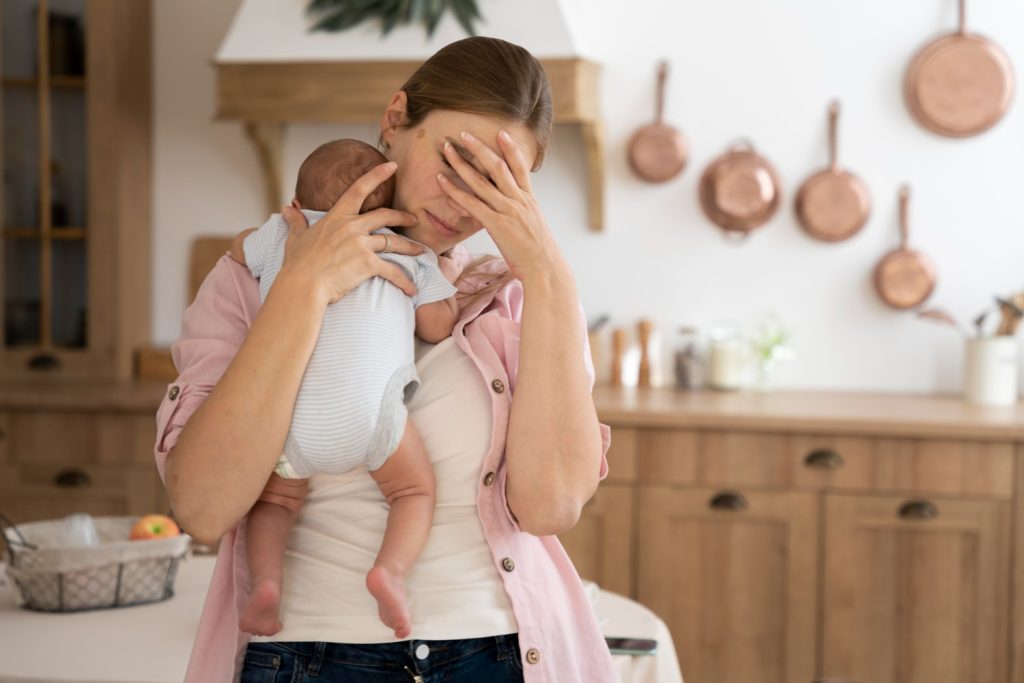
Having a child is stressful – that much is a given. While many are excited or look forward to having their child, the new responsibilities, sleep deprivation, and the lack of time for yourself and your partner might make mothers (especially new ones) feel like they are on an unstoppable emotional rollercoaster.
Depression and mood swings are common in mothers – mostly new moms – it’s not something that you should be ashamed of as it’s something that you can seek help for.
Postpartum Depression is very much real and it affects moms around the world. Many know that it exists but not everyone understands its nature and how it affects the mother. That said, here’s a quick rundown of what you need to know about Postpartum Depression.
What is Postpartum Depression?
Postpartum Depression (PPD) is a type of depression after childbirth. Mothers, and even those around them, can experience physical, hormonal, emotional, social, and financial changes after having a baby which can lead to PPD.

- Most often mothers might be hopeless, guilty, and sad, as they might not feel like they cannot or don’t want to bond or care for their baby. It just doesn’t affect first-time moms but also those who have had multiple births as well.
Causes & Symptoms of Postpartum Depression
Causes of PPD vary as mothers are different. But the most common causes of it include:
- Hormones
- Stress & Problems
- A History of Depression
- Fear
Most often, young mothers are also at a risk for Postpartum Depression as they might not be prepared to care for or support a child after birth.

Much like its causes, the symptoms of PPD vary as well. However, the new mom or their partner will have to be very sensitive or aware of PPD to be able to distinguish it apart from baby blues as symptoms can be the same.
Here are the symptoms to look out for in Postpartum Depression:
Again, Postpartum Depression can vary differently across moms and they might experience it completely differently from each other. What’s important is that those around them – especially their partners can tell Postpartum Depression and Baby Blues apart.
Baby Blues VS Postpartum Depression
Most mothers experience a couple of symptoms of baby blues after childbirth. It can be due to the sudden change in hormones, stress, isolation, fatigue, and even sleep deprivation. Mothers might feel overwhelmed and others, emotionally fragile. This usually happens within the first few days of delivery and usually tapers off by the end of the second week postpartum.
Baby Blues are normal and most mothers do experience it but if you find that your symptoms are getting worse or if they seem to go beyond the first couple of weeks, you might be experiencing postpartum depression.
Treatment for Postpartum Depression
The first step to getting treatment for PPD is to always seek help from a medical professional at its earliest stages to prevent it from getting worse. Fortunately, if it is stopped at the source, most mothers can get back on their feet quickly.
Some of the treatments that your doctor might provide include medication and counseling – sometimes both – depending on the severity of the Postpartum Depression.

Moms, always remember that you are not alone in your pregnancy journey. It might be overwhelming at first but always keep in mind that you have your partners, families, and friends as your support system throughout the pregnancy. Also, always bear in mind that your feelings are valid and are very important. Do not be afraid to seek help from a medical professional at the first signs of feeling like you have PPD.
You are not alone, moms. You’ve got this.
Citations:
-
- 5 Signs of Postpartum Depression: MindSet: TMS Therapy Providers. (n.d.). Www.mindsetsd.com. Retrieved August 3, 2022, from https://www.mindsetsd.com/blog/5-signs-of-postpartum-depression
- https://www.facebook.com/WebMD. (2016, September 9). Postpartum Depression: What You Should Know. WebMD; WebMD. https://www.webmd.com/depression/postpartum-depression/understanding-postpartum-depression-basics
- Smith, M., & Segal, J. (2019). HelpGuide.org. HelpGuide.org. https://www.helpguide.org/articles/depression/postpartum-depression-and-the-baby-blues.htm
- Cleveland Clinic. (2018, January 1). Postpartum Depression: Types, Symptoms, Treatment & Prevention. Cleveland Clinic. https://my.clevelandclinic.org/health/diseases/9312-postpartum-depression
- Haelle, T. (2020, April 17). Postpartum Depression Can Be Dangerous. Here’s How to Recognize It and Seek Treatment. The New York Times. https://www.nytimes.com/article/postpartum-depression.html





